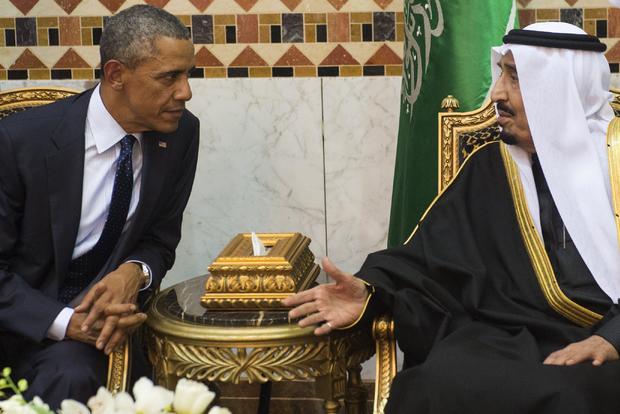President Obama meets with new Saudi king, aims to strengthen ties
President Obama flew to Saudi Arabia on Tuesday and paid respects to the Saudi royal family after the death of King Abdullah.
The president held his first formal meeting with the new king, Salman, and discussed Middle East security issues. Saudi Arabia is a key U.S. ally in the fight against ISIS and al Qaeda.
Underscoring the importance of that relationship was the size and makeup of the U.S. delegation for the visit.
The president arrived in Riyadh with a heavyweight bipartisan delegation: three Secretaries of State, four national security advisers and the heads of the CIA and the military's Central Command.
In his meeting with King Salman, the president reiterated the U.S. need for Saudi support in the fight against terrorism.
"We also have to stay in touch because they are close allies on the fight on terrorism, undermining support for extremism, and they're going to be part of the solution for solving the ISIS problem and stability in the region," said former U.S. Ambassador to Saudi Arabia James Smith.
Oil-rich Saudi Arabia is dependent on the U.S. for weapons and security. It is threatened from the south by al Qaeda in Yemen and in the north from an insurgency in Iraq and Syria. The kingdom is a key part of the military coalition against ISIS.
But Saudi Arabia is also critical of President Obama's lack of leadership in Syria, and his decision to negotiate with long-time foe Iran about its nuclear program.
Ambassador Smith said the two will remain allies.
"Some people have often described our relationship as a Catholic marriage in a Muslim world, where we desperately need each other, can't imagine a divorce, but disagree on a lot of things," Smith said.
For its part, the U.S. is critical of restrictions on women and human rights abuses such as public beheadings, part of the austere version of Islam practiced in the kingdom. Regardless, oil and security are the links that bind the two powers.

